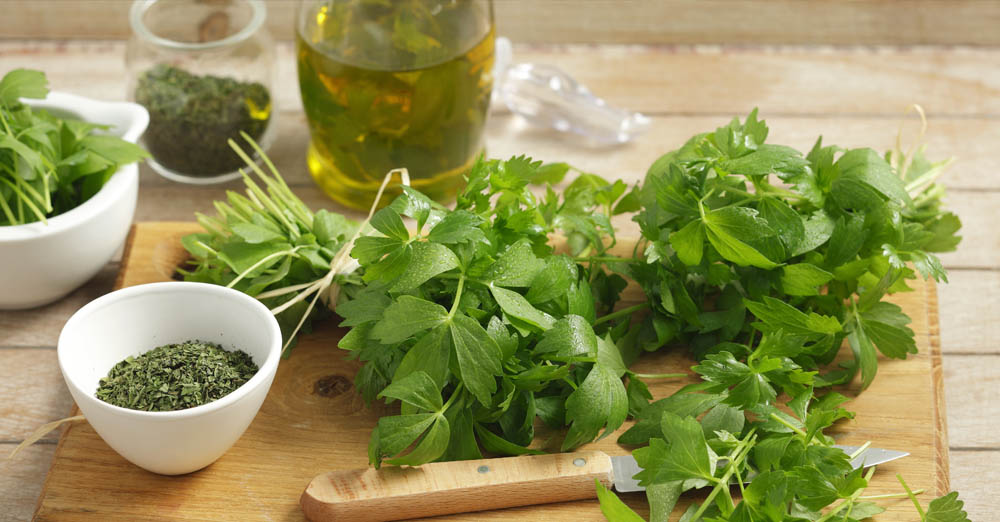Recently updated on: August 16th, 2023
Lovage – general description
Lovage (Levisticum officinale Koch) belongs to the group of Apiaceae plants, also called umbellifers. It forms perennial shrubs growing out into tall (even up to 2 meters high) acervate rosettes made of many erected, long-petiole compound leaves.
Lovage is a very valued spice, with a characteristic flavor of quite dominant umami, frequently associated with products such as Vegeta, bullion cubes, Maggi or soy sauce. Lovage root (Levistici radix) is used as an herbal ingredient for production of essential oil.
The oil is mainly made of phthalates, terpenoids and carboxylic acids. Studies have documented that the physical and chemical composition of lovage essential oil varies, depending on the developmental stage of the plant. These changes have an impact on its antioxidant properties. Lovage root also contains starch, coumarins, furanocoumarins, organic acids and large doses of vitamin C, as well as phenolic compounds, including flavonoids, saponins, phenolic acids and alkaloids.
Lovage – health enhancing properties
Essential oil derived from lovage may have relaxant properties. It has also been proven to show anti-inflammatory, anti-bacterial and antioxidant action. Lovage infusions have diuretic properties, because the root increases diuresis in inflammatory urinary tract diseases and prevents creation of urinary precipitate.
Lovage root is also an ingredient of nutritional supplements supporting sexual activity of women and men, which is most likely attributable to its relaxant properties. Coumarin in lovage is responsible for its anti-cancer properties, and additionally sedative, analgesic and anti-hydropic effects.
Furthermore, lovage relaxes the smooth muscles of the bile duct, regulates the digestive tract and improves intestinal peristalsis. The significant quantity of quercetin in the plant is a natural histamine inhibitor, responsible for its anti-allergic properties. In cosmetics, lovage reduces the symptoms of psoriasis and acne, contributing to better complexion. The antioxidants delay skin aging processes, preventing wrinkles.
Lovage is also used in hair care products, as its regenerates and strengthens hair follicles.
Counterindications
Lovage should not be used by pregnant women due to its strong relaxing properties, as it may lead to uterine contractions and eventually a miscarriage. This action is attributable to the substance called liguistilide.
Another counterindication for lovage is aliments associated with acute and chronic renal dysfunctions. The furanocoumarins contained in lovage may have photosensitizing effect. Water- and alcohol-based extracts from the plant also increase skin sensitivity to sunlight.
Summary
Positive properties of lovage make it a useful remedy in many ailments. However, special caution should be exercised in view of its counterindications, when use in any form should be avoided to prevent harm to health.
Literature:
https://herbiness.com/2016/06/08/lubczyk-ogrodowy-w-fitoterapii-kulturze-i-kulinariach/
https://odzywianie.hellozdrowie.pl/lubczyk-i-jego-wlasciwosci-zdrowotne/
http://www.postepyfitoterapii.pl/wp-content/uploads/2019/10/pf_2019_03_05.pdf
https://www.researchgate.net/publication/317936444_Essential_oil_Composition_and_
Antioxidant_Activity_of_Levisticum_officinale_Koch_at_Various_Phenological_Stages
http://www.bc.wydawnictwo-tygiel.pl/public/assets/456/Ro%C5%9Bliny%20w%20naukach%20medycznych%20i%20przyrodniczych%20-%20przegl%C4%85d%20i%20badania.pdf


